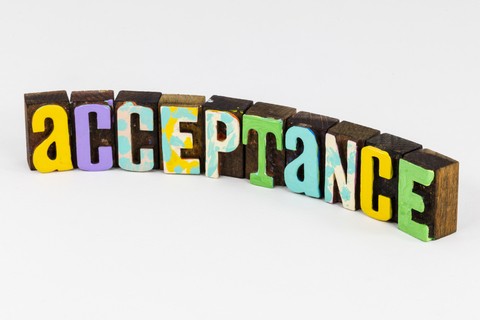How Do We Practice Self Love?

The Four Stages of Self-Love
1. Self-Awareness – It’s as simple as this: Before we can love ourselves, we must know ourselves. While this may seem like an obvious point, it’s actually incredibly easy to lose sight of who we are amongst the chaos of everyday responsibilities, tasks and goals. We can get caught up in our “roles” in life and not pay attention to our core. So before you dive into your personal journey of self-love, take some time to make sure you are falling in love with the right person. Reflect on your authentic self—what drives you? Motivates you? Excites you? Disappoints you? Saddens you? Angers you? Inspires you? Relaxes you? But above all: Take all the time you need to seriously consider your deep-seated values and how they affect your decision-making and your triggers. Your values are the blueprint for who you are as an individual. They are the most telling things about you—and without knowing them intimately, loving yourself is going to feel forced and forged. If you’re looking for ways to dive into who you really are, I recommend looking into assessments. The Myers Briggs Type Indicator is a great start, along with the Enneagram, DISC and Strengths Finder. The longer you stay in this phase, the better you’ll get to know yourself. Don’t rush.
2. Self-Acceptance – Warning: When you dive deep into the inner crevices of exactly who you are, you might not love everything you see. That’s OK. We all have our random quirks and values that don’t look stunningly gorgeous on paper. The point isn’t to look at an airbrushed version of ourselves—but to fully embrace and accept all of who we are, even the less desired qualities. So give yourself some grace. Accept the fact that you might be a little overly obsessed with status, or that you like to avoid pain at all costs. Embrace your values—even if they make you flinch sometimes. The goal should not be to change who you are at your core. Self-improvement is meant to capitalize on who you already are. Self-acceptance is meant to embrace those fundamental pieces that make you who you are. You are a human, and none of us are perfect. A professor of mine once said, “If everyone in a room were to throw their problems in a pile, everyone would reflect on the other problems available, and still want to dig their own back out.” So own your problems. Own your mistakes. Own your values. Once you can fully accept—and embrace—your authentic self, the easier your self-love journey will be.
3. Self-Confidence – The best way to describe self-confidence is to think of it as self-congruence. When you show up as your authentic self in the world, and act on your self-acceptance, that’s self-confidence. This doesn’t mean you have to put yourself on display every chance you get, but it does mean that you allow your values and your authentic self to guide your actions and behaviors out in the world. When you honor who you really are—and let other people see it—you’re being congruent with your actions. You’re not hiding yourself for the sake of others, and you’re not shaming yourself for being who you really are. Instead, you’re releasing the pressure to play a certain role or stereotype, and just being yourself. While it sounds easy, we all know that’s not always the case. It takes courage and bravery to decide to respect your own values and opinions more than others. But that’s what you have to do—every single day. Decide to show up for yourself and not be dictated by how others view you. And when you find yourself struggling to find the willpower to keep going, simply whisper to yourself, “Other people’s opinions of me are NOT my business.” Not everyone will love you – but that doesn’t matter when YOU love you. Which brings us to our next step…
4. Self-Love – You have arrived at the fourth and final step of the self-love journey. From here on out, you will make a commitment to yourself and to your growth. You will carve out time in your daily routine to invest in yourself, compliment yourself, reassure yourself and cheer yourself on. Because if you don’t, we cannot assume that others will. This is your responsibility, and you owe it to yourself. So what does acting on self-love actually look like? Below is the breakdown of actual steps you can take to practice self-love.
The Three Pillars of Self-Love
1. Gratitude – Every single day, write down five things you are grateful for, and reflect on why you feel thankful for these aspects of your life. They can be small, monumental, boring, exciting, static or ever changing. Follow your moods and your phases in life. But no matter what, always take the time to find gratitude in your everyday life. Examples can range from having nice weather, to waking up rested, to reflecting on your support system, to thanking yourself for working hard. Try to connect your gratitude to your values. What are you proud of yourself for? What compels you to get out of bed every morning and keep going? Be intentional about your gratitude list as often as possible. Secondly, feel free to spread gratitude to others. While it’s crucial to focus on being thankful for your own skills and determination, it’s also important to show gratitude to your support system. Write a gratitude letter to someone in your life once per week. The people you surround yourself with have a profound impact on your own self-worth—and telling them so will only help strengthen your relationships with them, and with yourself.
2. Affirmations and Positive Self-Talk – “The words we speak become the house we live in.” Think about that. If you are living in a space of negativity, badgering, shaming, judging and criticizing, how in the world are you supposed safe? Secure? Happy? It’s virtually impossible. Be careful how you speak to yourself. Show yourself love and gratitude by choosing kind and encouraging words. Have your own back—especially when it comes to standing up to your inner critic. In fact, if you have a rather vocal inner critic, be sure to externalize it by naming them. This creates a separation between yourself and your negative voice, which can help you realize that you are not indelibly tied to them. You are able to produce kind, reaffirming words, even if you are used to your inner critic being the lone voice. To get in the habit, practice saying at minimum one to three affirmations per day. They can be as simple as “I am worthy,” or as detailed as “I do not wait for others to give me permission to do what I love.” Ideally, these affirmations will set the tone for the rest of your day, and the more you repeat them, the more you’ll believe them. Between the constant source of positivity from yourself, and the undermining of your inner critic, you’ll be on your way to creating a safe environment for yourself to thrive.
3. Self-Care – Self-care can be defined as any act that nourishes the self. Some self-care acts might re-energize, while others might be for relaxation purposes. Typically, it’s used to rest, reset or reflect. Self-care will also look different for everyone. But the most important takeaway is that In order to have self-love, you have to show yourself you love yourself daily with acts of service. Taking care of yourself can be divided into three different categories: mind, body and soul. On an amazing self-care day, you’ll check off an item under all three categories. On more challenging days, you might only check off one. Here are some examples of self-care under each category:
Mind: journaling, reading for pleasure, watching a relaxing show, puzzling, drawing, crafting, knitting.
Body: exercising, having a spa day, doctor’s visits, visiting a salon, stretching, taking a bath, doing a skincare routine, facial masks.
Soul: prayer, meditation, connecting with a loved one, participating in a community event, reading a self-help or spiritually inclined book.
Remember: Everyone will have different self-care items that speak to them. For example, under “body,” some might prefer exercise over a manicure—and that doesn’t mean their self-care is better or worse than anyone else’s! As long as you are practicing self-care that fills your cup, you are doing it right. If you’re having trouble staying consistent or coming up with ideas for your own self-care, consider investing in a self-care calendar or self-care bingo to assist with the planning. Both could take the guesswork out of your planned activities and help you stay on track with your progress. I hope these tips help you curate a healthy and happy relationship with yourself. Your stability, security and sanity will thank you immensely if you can dedicate time to yourself every single day.
Strength and courage,
Wade

